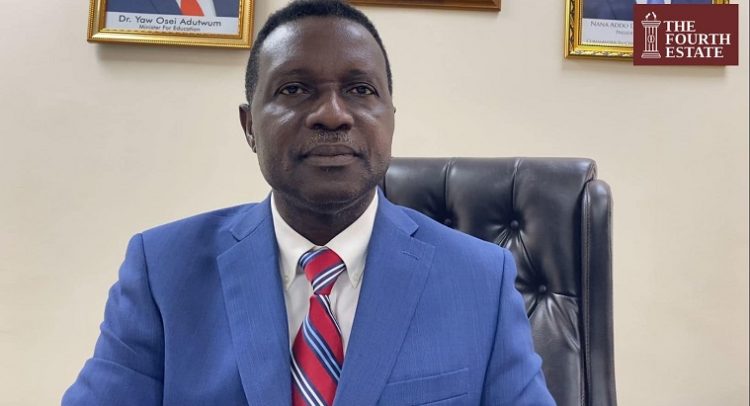Dr. Yaw Osei Adutwum
Ghana’s education sector is reaching a watershed moment as the country sees unprecedented growth in Senior High School (SHS) enrolment.
As of March 18, 2024, a total of 504,580 out of 554,033 students had been enrolled, representing 91.07%, compared to 448,803 out of 517,361 placed/qualified students (86.75%) in 2023.
In 2022, a total of 465,903 out of 532,038 placed/qualified students (87.57%) were enrolled in SHS, compared to 425,397 out of 480,413 placed/qualified students (88.55%) in 2020.
The Minister of Education, Dr. Yaw Osei Adutwum, said the increase in enrolment shows the effectiveness of many government interventions and programmes targeted at improving access to education, and ensuring that every Ghanaian child has the opportunity to receive quality education.
Quality
According to him, one of the most striking elements of the recent increase in SHS enrolment is that it has not come at the expense of quality.
He noted that, despite the rise in student enrolment, they have remained committed to upholding high educational standards.
Dr. Adutwum stated that the implementation of the Free SHS programme, together with targeted interventions to improve teaching and learning outcomes, has ensured students continue to receive quality education that will prepare them for success in the future.
Using data to back up his assertions, the minister noted that the years 2020, 2021, 2022 and 2023 (Free SHS graduates) were the only ones in the past nine years in which more than 50% of candidates obtained A1-C6 in all Core Subjects, with the 2023 results being the best in the nine years.
“Note that in the 2022 and 2023 year groups, more than 60% of candidates obtained A1-C6 in all Core Subjects. A1-C6 are the grades that are required for a student to qualify for admission into a tertiary institution in Ghana,” he pointed out.
In 2023, Dr. Adutwum said candidates obtained 73.11% pass in English Language, 66.82% pass in Integrated Science, 62.23% pass in Mathematics, and 76.76% pass in Social Studies.
In 2022, candidates achieved 60.39% in English Language, 62.45% in Integrated Science, 61.39% in Mathematics, and 71.51% in Social Studies.
According to him, in 2015, candidates obtained 45.2% in English Language, 28.7% in Integrated Science, 32.4% in Mathematics and 57.4% in Social Studies.
The minister added that in 2016, candidates obtained 51.6% in English Language, 48.35% in Integrated Science, 33.12% in Mathematics and 54.55% in Social Studies.
Leveraging on Technology
He noted that, as part of efforts to reposition Ghana’s education system in accordance with the fourth industrial revolution, the government has launched the Smart Schools Project to improve the learning experience for SHS students.
“The Ghana Smart Schools Project (GSSP) is an extension of the government’s free SHS and TVET digitalisation agenda to transform Ghana’s economy,” he pointed out.
He explained that the project seeks to equip the Ghanaian students with the 21st century learning opportunities to compete globally.
“Under this project, all public SHS students (GES & TVET) would be supplied with tablets fully loaded with a customised Learning Management System (LMS).
“The Government of Ghana has enrolled about 5.7 million children who have benefited while some are still benefiting from the Free SHS policy,” he added.
He said the Government of Ghana is using education as a catalyst for the future transformation of the country.
“Free SHS has been a remarkable novelty after COVID-19 pandemic and other dire economic constraints.
“We have been able to sustain the Free SHS programme and has escalated it to include the distribution of free tablets to each public school (SHS/TVET) and STEM. Every student gets a preloaded tablet accessorised with a backpack, solar recharged and an offline version of the course content,” he said.
Gender Parity
The minister also said Ghana had attained gender parity in SHS enrolment, surpassing many other countries in Sub-Saharan Africa.
“A comparative analysis reveals that Ghana’s progress in gender equality in education is commendable, with equal opportunities provided to both male and female students.
“This achievement is a testament to the government’s commitment to promoting gender equality and empowering girls through education,” he noted.
Dr. Adutwum said by ensuring that all children, regardless of gender, have access to education, Ghana is paving the way for a more equitable society.
By Ernest Kofi Adu


